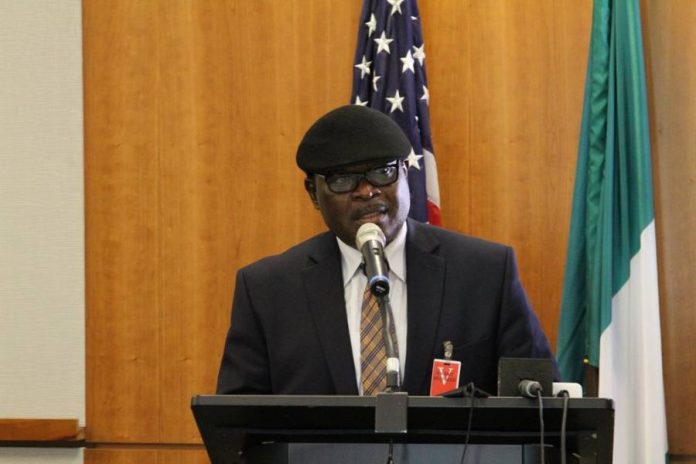April 2019
- Posting by PRAWA
- News

The Prisons Rehabilitation and Welfare Actions (PRAWA) has called for a review of the criminal laws in the country to stop the treatment of minor abc petty offences as crime.
The Executive Director of PRAWA, Mrs. Uju Agomoh, said this at a dissemination workshop organised by the Non-Governmental Organisation in collaboration with the Open Society Initiative of West Africa (OSIWA) in Abuja.
Agomoh explained that petty offences like prostitution, hawking, loitering, being a vagabond and constituting public nuisance should not be treated as criminal offences.
She stressed that the actions of the law enforcement agencies towards petty crimes are not proportional to the kind of offences committed, and sometimes not within the law.
According to her, using the criminal process to deal with these crimes not only incures more cost on the Federal Government in terms of prison welfare for detained offenders, but also clogs the criminal justice system and further congests the already congested prisons, with an increased number of awaiting trial.
“The country is really at a loss, the country is suffering more by the way we are dealing with and processing these petty offenders”, she said.
Speaking further, Agomoh advised that there should be a different and better way of dealing with petty offenders, adding that “there should be a human face in terms of how we deal with these offences.”
The Executive Director of PRAWA, further noted that most of the petty offences are committed out of poverty.
She said the baseline report revealed that most petty offenders are poor people and urged that a more constructive approach be applied by finding ways to tackle the economic conditions of the offenders.
She said: “Sometimes you see people who are hawking, yes as a they are hawking, you find our that they are making the environment not to look good, but a lot of these people don’t have jobs, they are not able to pay for shops, so you pick them up and maybe you give them fine which rather are not able to pay and they are detained.
“The detention causes a lot of problem to them to their family and even the government that is spending money in terms of feeding them when they get to prison.
“This is an issue, so let us have a human face in terms of how we deal with these offences, people who are poor, should not be criminalised because they are poor, people who are going through social and economic needs and challenges, we should find better ways of dealing with them, rather than using criminal process.”
To this end, Agomoh informed that PRAWA is set to train the law enforcement agencies, and engage with support services to provide and strengthen their programme in terms of skills acquisition, of counselling in terms of providing funding.
In the same vein, the Chief Judge of the FCT, Justice Ishaq Bello, called for support of government and revant stakeholders to implement the decriminalisation and declassification of petty offences.
Justice Bello stressed that the enforcement of such laws that criminalise petty offences shows that the laws are enforced in a discriminatory manner and its continued enforcement is disproportionately experienced by the poor and marginalised populations, including persons with disabilities.
He said: “As such, this is the right time to seek the support of stakeholder institutions; government and non-governmental alike to rally round for the implementation of this project.
“Together we have a responsibility to assist the poor and those in vulnerable situations by using the instrument of law to lessen their exposure and vulnerability to legal, economic and social challenges.
“We must and should work together to end poverty in all dimensions and also decriminalise and declassify the classes of offences that seem to target the poor and the vulnerable.”
Also, the Inspector General of the Police, Mohammed Adamu, assured that the police will work assiduously with PRAWA and OSIWA towards the declassification and decriminalisation project.
Adamu who was represented by the Assistant Inspector General of Police (AIG) in charge of Training Development, David Folawiyo, said such move will “help in the development of policing”.
